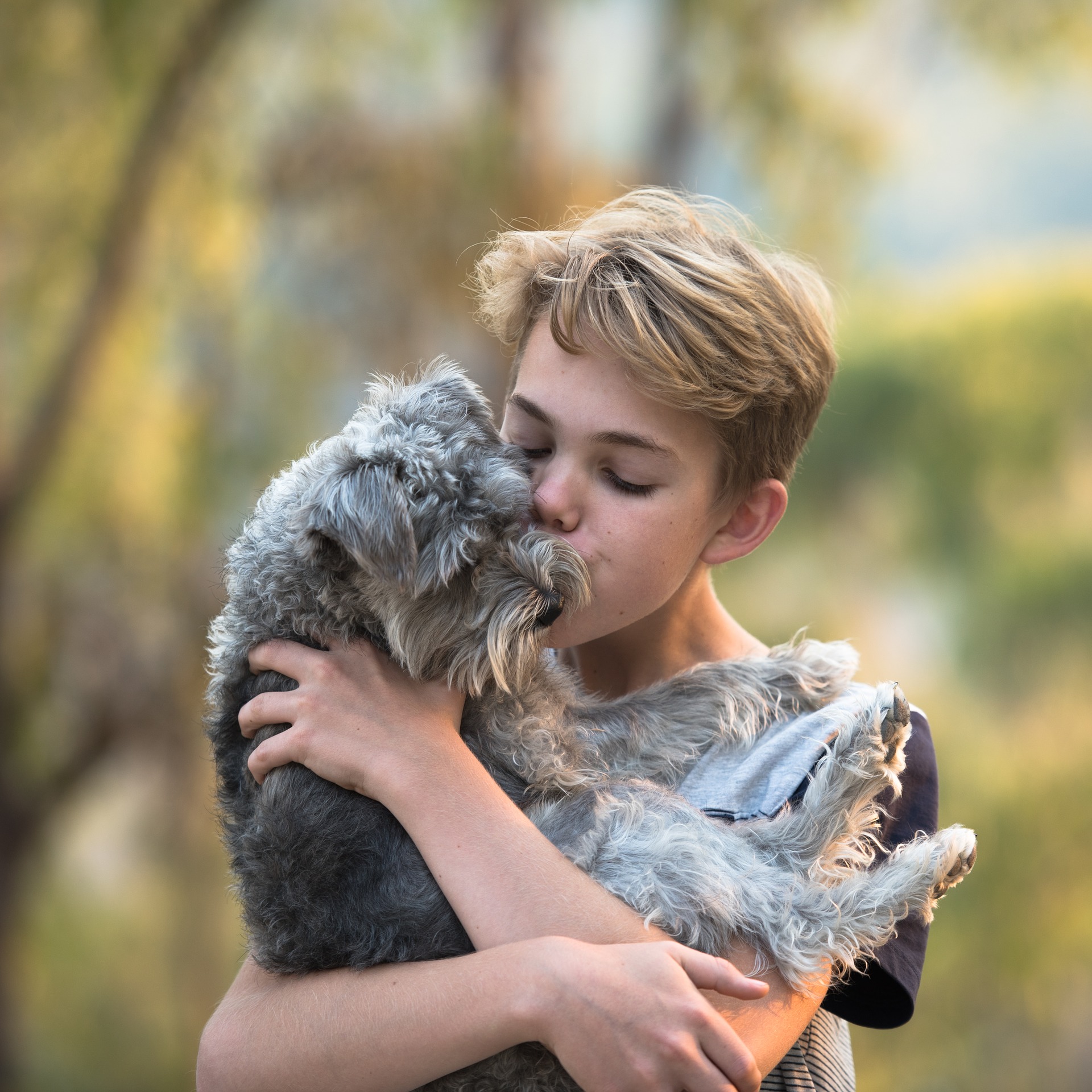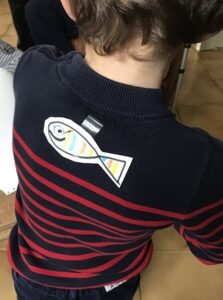Être and Avoir: Mastering the Two Most Important French Verbs
In this post we’ll take a look at the two most important French verbs, être and avoir. Both être (to be) and avoir (to have) are irregular, meaning they do not follow the predictable conjugation pattern of regular verbs. But it’s really important to master both of these verbs, because they are so commonly used in French. All it takes is practice!
In this post we’ll give you what you need to master être and avoir in the present tense. First we’ll review the full conjugation of each verb. Next, we’ll cover major uses of each verb, along with plenty of examples. Then we’ll see important expressions that use être and avoir. Finally, we’ll include practice exercises to help you remember the forms and test yourself.
Note about French Pronouns and Verbs in the Present Tense
Before we begin, let’s pause to see a few points to keep in mind when using French pronouns and conjugating French verbs:
- First, the pronoun je becomes j’ before a vowel or silent h: j’ai (I have), j’habite (I live).
- Second, there are two ways to say you in French. Tu is singular you, used when you’re speaking to one person who you know well, or who is younger than you. Vous has two uses. It is the formal form of you, for when you’re speaking to someone you don’t know well or to whom you want to show respect. Vous is also used to speak to more than one person, in a familiar or formal setting. You should always use vous when you’re talking to an adult stranger, for example in a store or when buying something.
- Third, the pronoun on has two meanings. It can mean one in a general sense, meaning any person. But it also means we, and it is commonly used in spoken French to mean we.
- Fourth, there are two ways to say they. Use ils to refer to an all-male group, and elles to refer to an all-female group. Ils can also be used for mixed groups.
- Fifth, if you’d like to use a gender-neutral third person pronoun, use iel for singular they, and iels for plural they. You may also hear el and els.
- Sixth, French negatives “sandwich” the verb. The first element is ne, then the verb, and then the negative: ne… pas (not), ne…jamais (never), ne…plus (not anymore), ne… que (not only).
1. Être (to be)
First, we’ll look at être (to be). It’s used for descriptions and states of being. It’s also got a few important grammatical functions in verbal constructions, so it’s an important verb to master.
Forms of être
Être is totally irregular. Many of the conjugated forms look nothing like the infinitive.
| je suis | nous sommes |
| tu es | vous êtes |
| il/elle/on est | ils/elles sont |
Uses of être
Être is used in many of the same instances where English uses be. You use être to describe things, to talk about nationality or identity or profession, and to express location.
- C’est ma maison.
It/This is my house. - Je suis française, et mon mari est italien.
I’m French, and my husband is Italian. - D’où êtes-vous ?
Where are you from? - Elle est très sympa.
She’s very friendly. - Il est professeur.
He is a teacher. - Ils sont à l’école.
They are at school. - Elles sont en France.
They are in France.
Être also has two grammatical functions. Like English, it’s used to form the passive voice. But unlike English, it’s used as the auxiliary (helping verb) in the passé composé of verbs of motion and reflexives.
- Ces voitures sont fabriquées en France.
These cars are made in France. - Est-ce que la porte est fermée ?
Is the door closed? - Nous sommes allés à Tours.
We went to Tours. - Je me suis reveillé très tard ce matin.
I woke up very late this morning.
If you’d like to learn more about the passé composé, check out this post.
Expressions with être
Now let’s look at some common expressions that use être. French doesn’t have a present progressive (is doing, am speaking, are sleeping), and you normally just use the simple present tense to describe ongoing activities. But if you really want to stress that you’re in the middle of doing something, use être en train de + infinitive.
- Je suis en train de manger.
I’m eating. I’m in the middle of eating. - Ils sont en train de repeindre la maison.
They’re in the middle of painting the house.
If you’re just about to do something, you can use être sur le point de + infinitive.
- Elle est sur le point de partir.
She is (just) about to leave. - Je suis sur le point de les appeler.
I’m just about to call them.
The phrase être à (quelqu’un) means to belong to (someone). It can also mean to be up to (someone) to do something when it’s followed by an infinitive.
- Cet ordi est à moi.
This computer is mine/belongs to me. - C’est à toi de décider.
It’s up to you to decide.
Practice 1
Fill in the blanks with the correct form of être and then translate the complete sentences.
- Je _____ italienne.
- Tu _____ très gentil.
- Il _____ professeur de mathématiques.
- Nous _____ en vacances en Espagne.
- Vous _____ prêts pour l’examen ?
- Elles _____ fatiguées après la fête.
- Pierre et moi, nous _____ de bons amis.
- Marie et toi, vous _____ dans la même classe.
- Ce chien _____ très mignon !
- Les enfants _____ dans le jardin.
- On _____ déjà en retard !
- Elle _____ contente de son cadeau.
- Nous _____ en train de faire nos baggages.
- C’_____ à lui de prendre la décision.
- Le bébé _____ sur le point de s’endormir.
2. Avoir (to have)
Now let’s turn to avoir (to have). It’s used for possession, to talk about age, and in many common expressions. It’s also used to form compound tenses with most verbs.
Forms of avoir
Avoir is also quite irregular.
| j’ai | nous avons |
| tu as | vous avez |
| il/elle/on a | ils/elles ont |
Uses of avoir
Just as in English, avoir is used to express possession.
- J’ai un frère et deux sœurs.
I have one brother and two sisters. - Nous avons un petit appartement en ville.
We have a little apartment in the city. - Ils n’ont pas de chat, mais ils on trois chiens.
They don’t have a cat, but they have three dogs. - On n’a pas beaucoup de temps. Dépêche-toi !
We don’t have much time. Hurry up!
Avoir is also used as the auxiliary verb in the passé composé of most verbs. If you’d like to learn more about the passé composé, check out this post.
- Ils ont regardé la télé.
They watched TV. - J’ai très bien dormi.
I slept really well. - Qu’est-ce qu’elle a dit ?
What did she say? - Qui t’a donné ça ?
Who gave that to you?
Expressions with avoir
Avoir is used in a lot of common expressions that use be or a verb other than have in English.
- avoir faim (to be hungry)
- avoir soif (to be thirsty)
- avoir chaud (to be hot)
- avoir froid (to be cold)
- avoir sommeil (to be sleepy)
- avoir mal (à la tête, au dos…) (to have pain [a headache, a backache])
- avoir peur (de) (to be afraid [of])
- avoir envie (de) (to feel like)
- avoir besoin (de) (to need)
- avoir … ans (to be … years old)
- avoir raison (to be right)
- avoir tort (to be wrong)
- avoir de la chance (to be lucky)
- avoir l’habitude de (to be accustomed to, to have the habit of…)
- avoir lieu (to take place)
- avoir l’air (to seem)
- avoir beau + inf (no matter how much…)
- Tu n’as pas raison, tu as tort !
You’re not right, you’re wrong! - Tu as quel âge ? J’ai trente ans.
How old are you? I’m thirty. - As-tu chaud ? Non, j’ai froid !
Are you hot? No, I’m cold! - J’ai faim. J’ai envie de manger quelque chose.
I’m hungry. I feel like eating something. - Ton frère a l’air très sympa.
Your brother seems very nice. - Quand la réunion a-t-elle lieu ?
When does the meeting take place? - On a beau essayer, on ne peut rien changer.
No matter how much we try, we can’t change anything.
Practice 2
Fill in the blanks with the correct form of avoir and then translate the complete sentences.
- J’_____ un chien noir.
- Tu _____ deux frères et une sœur.
- Il _____ un nouveau vélo rouge.
- Nous _____ beaucoup de travail aujourd’hui.
- Vous _____ une grande maison à la campagne.
- Elles _____ toujours de bonnes idées.
- Paul et moi, nous _____ le même âge.
- Sophie et toi, vous _____ un professeur sympa.
- Le bébé _____ faim.
- Les élèves _____ un examen demain.
- On _____ de la chance de vivre ici.
- Elle _____ un joli sac à main.
- _____-tu soif ?
- Maman _____ toujours froid la nuit.
- J’_____ peur des araignées !
Get on the road to speaking French with the Language Garage!
We hope you’ve enjoyed learning about être and avoir in French. If you’d like to learn more:
- Follow us on Facebook, LinkedIn, BlueSky, Twitter, Threads, Instagram, or Pinterest. We publish lots of French vocabulary, grammar, and culture notes, so it’s a great way to pick up some new vocabulary and practice.
- Check out our other posts on French language, culture, and more.
- Enroll in affordable, flexible, and personalized private online French lessons or sign up for a small group online French class.
- Create a free Language Garage account to access tons of French vocabulary, grammar, and culture.
Answer Key
Practice 1
- Je suis italienne. (I am Italian.)
- Tu es très gentil. (You are very kind.)
- Il est professeur de mathématiques. (He is a math teacher.)
- Nous sommes en vacances en Espagne. (We are on vacation in Spain.)
- Vous êtes prêts pour l’examen ? (Are you ready for the exam?)
- Elles sont fatiguées après la fête. (They are tired after the party.)
- Pierre et moi, nous sommes de bons amis. (Pierre and I are good friends.)
- Marie et toi, vous êtes dans la même classe. (Marie and you are in the same class.)
- Ce chien est très mignon ! (This dog is very cute!)
- Les enfants sont dans le jardin. (The children are in the garden.)
- On est déjà en retard ! (We are already late!)
- Elle est contente de son cadeau. (She is happy with her gift.)
- Nous sommes en train de faire nos baggages. (We’re in the middle of packing our bags.)
- C’est à lui de prendre la décision. (It’s up to him to make the decision.)
- Le bébé est sur le point de s’endormir. (The baby is just about to fall asleep.)
Practice 2
- J’ai un chien noir. (I have a black dog.)
- Tu as deux frères et une sœur. (You have two brothers and a sister.)
- Il a un nouveau vélo rouge. (He has a new red bike.)
- Nous avons beaucoup de travail aujourd’hui. (We have a lot of work today.)
- Vous avez une grande maison à la campagne. (You have a big house in the countryside.)
- Elles ont toujours de bonnes idées. (They always have good ideas.)
- Paul et moi, nous avons le même âge. (Paul and I have the same age.)
- Sophie et toi, vous avez un professeur sympa. (Sophie and you have a nice teacher.)
- Le bébé a faim. (The baby is hungry.)
- Les élèves ont un examen demain. (The students have an exam tomorrow.)
- On a de la chance de vivre ici. (We are lucky to live here.)
- Elle a un joli sac à main. (She has a pretty handbag.)
- As-tu soif ? (Are you thirsty?)
- Maman a toujours froid la nuit. (Mom’s always cold at night.)
- J’ai peur des araignées ! (I’m afraid of spiders!)






